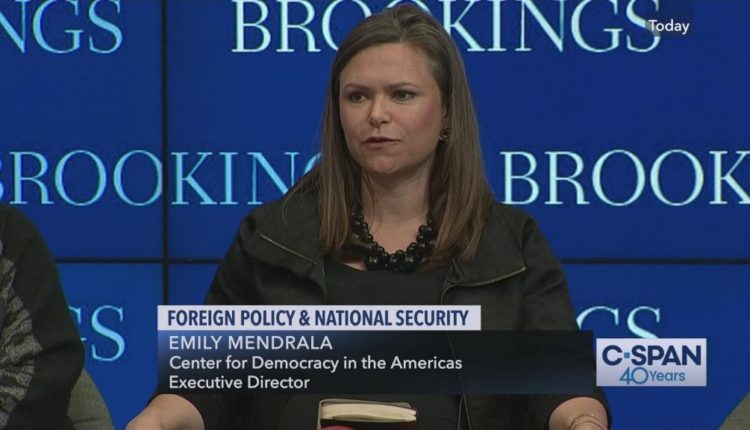
CDA statement on Cuba travel sanctions
WASHINGTON—In response to the announcement by the Department of the Treasury’s Office of Foreign Assets Control (OFAC) on additional Cuba regulations, released in Washington, D.C, on June 4, 2019, Emily Mendrala, executive director of the Center for Democracy in the Americas (CDA), released the following statement:
“The new Cuba regulations imposed by the Trump administration represent yet another step backwards that will only undermine U.S. business interests, further divide Cuban families, and create hardships for the Cuban people, especially Cuba’s entrepreneurial class who the administration has repeatedly said it aims to support.
“The new rules effectively eliminate cruise travel, a method of travel that only began in recent years but that overtook air travel in 2017 as the most popular method of travel to the island, and allowed countless Americans the chance to discover Cuba for the first time. Cuban Americans also enjoyed the opportunity to travel to the island via cruise to reconnect with family members. What’s more, cruise travel infused travel dollars into resource-deprived port communities outside of Havana, and sustained private businesses beyond the nation’s capital.
“If the administration aims to see change come to Cuba, eliminating people to people travel, the category under which many U.S. travelers go to Cuba to engage directly with the Cuban people, is short-sighted. It’s often said that Americans are excellent ambassadors for democratic values, and it’s true. Choking off this avenue of travel undermines the administration’s objectives for democratic change and its purported aim to support Cuba’s private sector; travel under this category supports private restaurants, lodging, clothing stores, and transportation companies, along with the many private services they contract, such as private marketing and financial consultants, IT operations, event planning services, and more.
“It’s true that Cuba can play a role, alongside the international community, in a resolution to crises in Venezuela. Cuba has demonstrated a productive role in solving seemingly intractable problems, recently serving as host to the Colombia-FARC peace negotiations, which had the support of the U.S. government. But decades of isolationist U.S. policies toward Cuba demonstrate the limited coercive powers of sanctions and would suggest the government is unlikely to be brought to this role by sanctions.
“Despite new obstacles, we are confident that U.S.-Cuba engagement will continue in areas of shared interest thanks to existing ties forged through legal travel. CDA will continue to work with allies in Congress to champion engagement, foster family ties, and support the Cuban people.”
According to a May 2019 survey of Cuba’s private sector by Cuba Educational Travel, 96% of the 200 total participants, responded that decreased American travel would harm their businesses, and 99% of participants said that the U.S. government should increase American travel to Cuba.


